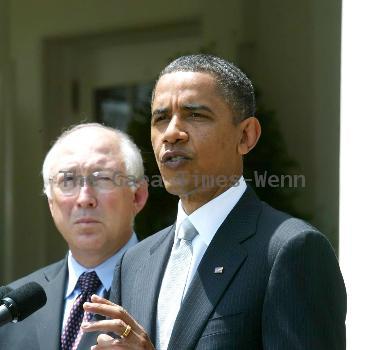China’s military to conduct live-fire sea drill in wake of scheduled US-Korea joint exercises
By APTuesday, June 29, 2010
China to conduct live-fire sea drill this week
BEIJING — China will start six days of live-fire drills off its eastern coast Wednesday amid plans for joint U.S.-Korea military exercises in the region.
The People’s Liberation Army will ban all vessels from entering a large portion of the East China Sea from midnight until 6 p.m., starting from Wednesday until Monday.
The Chinese military announcement Tuesday is seen by some analysts as a response to one by the United States and South Korea that they would conduct joint exercises in the Yellow Sea in a show of force aimed at rebuking North Korea’s aggression.
“Though the Chinese government did not say anything about the drill, anybody with common sense on military strategy will bet that they are related,” Shi Yinhong, an expert on U.S. studies at Renmin University, was quoted as saying in the official China Daily.
However, the Foreign Ministry on Tuesday denied there was a link, calling the naval exercise “regular military training.”
“This has nothing to do with the situation on the Korean peninsula,” spokesman Qin Gang told a regularly scheduled news briefing, adding the announcement of the China drill was to ensure the safety of vessels and planes passing nearby.
An editorial in the state-run Global Times called the naval drills a necessary way for China to beef up its ‘military potency.’
On Monday, Pentagon spokesman Bryan Whitman said he expects the joint military exercises between the U.S. and South Korea, originally slated for June, to be held in July. He said that planning was ongoing.
The exercises were first announced shortly after an international investigation said that North Korea had torpedoed a South Korean ship in March, killing 46 sailors on board. North Korea has denied the allegation and China has refused to join the international condemnation of Pyongyang. U.S. defense officials say the Navy is considering dispatching a massive nuclear-powered U.S. aircraft carrier to the waters.
Last week, China expressed concern that the drills could prompt further rash behavior from North Korea’s isolated and erratic communist regime.
However, this week, at the G-20 Summit in Toronto this Sunday, U.S. President Barack Obama told reporters that he hoped Chinese President Hu Jintao would recognize that North Korea crossed a line in the warship sinking.
“There’s a difference between restraint and willful blindness to consistent problems,” Obama had said, referring to Beijing’s worry that instability in the North could cause major problems across the border in China.
Obama said he wants the U.N. Security Council to produce a “crystal-clear acknowledgment” of the North’s action. The cooperation of China, a veto-wielding member of the Security Council and North Korea’s major international supporter, is crucial to that goal.
On Tuesday, Qin defended China’s position on the Cheonan sinking, saying Beijing was against any act that undermines stability on the Korean peninsula. “China’s position and China’s efforts brook no accusation. And our position is just and fair. We won’t do anything to fuel the flame,” he said
__
Associated Press reporter Gillian Wong contributed to this report.

